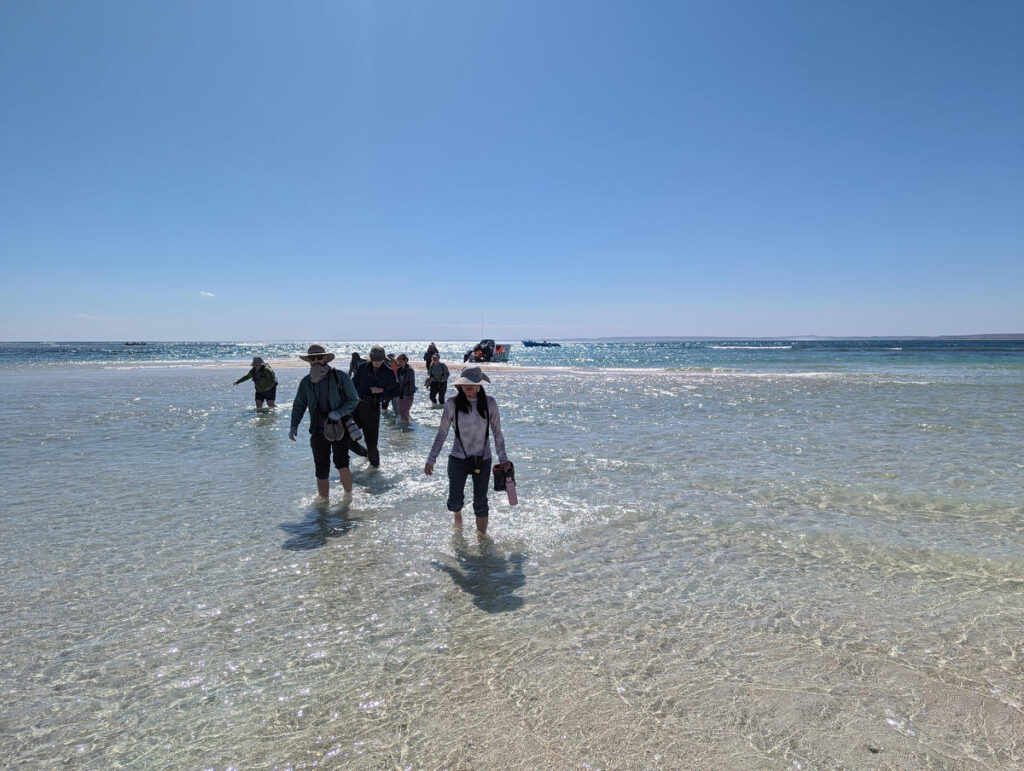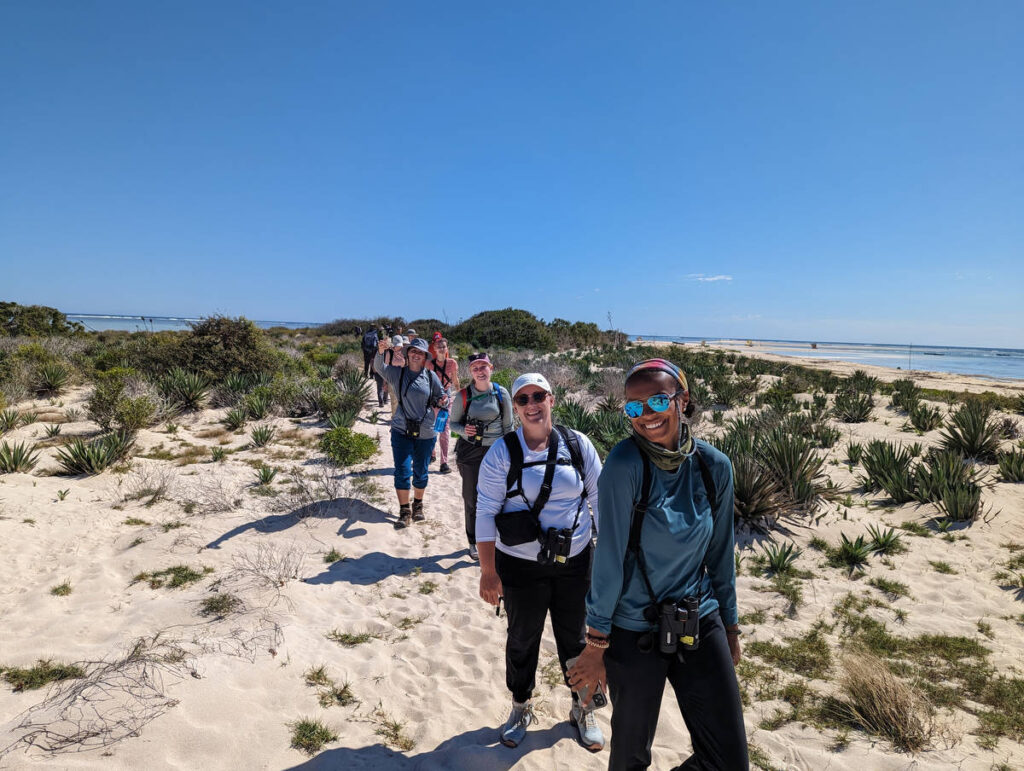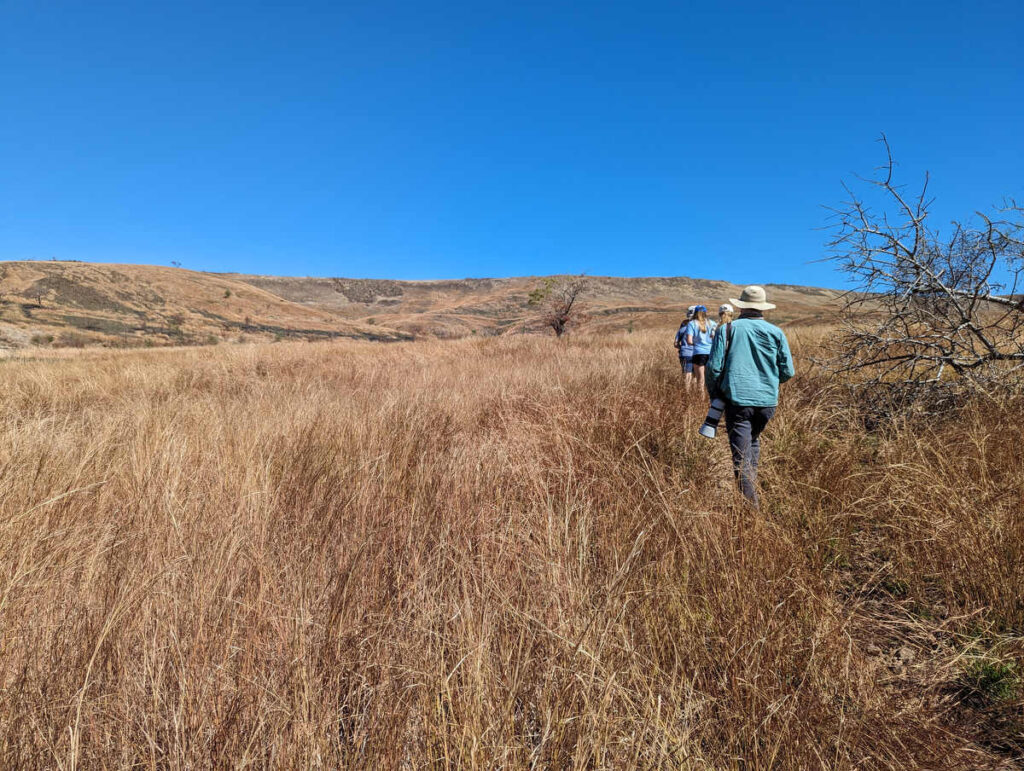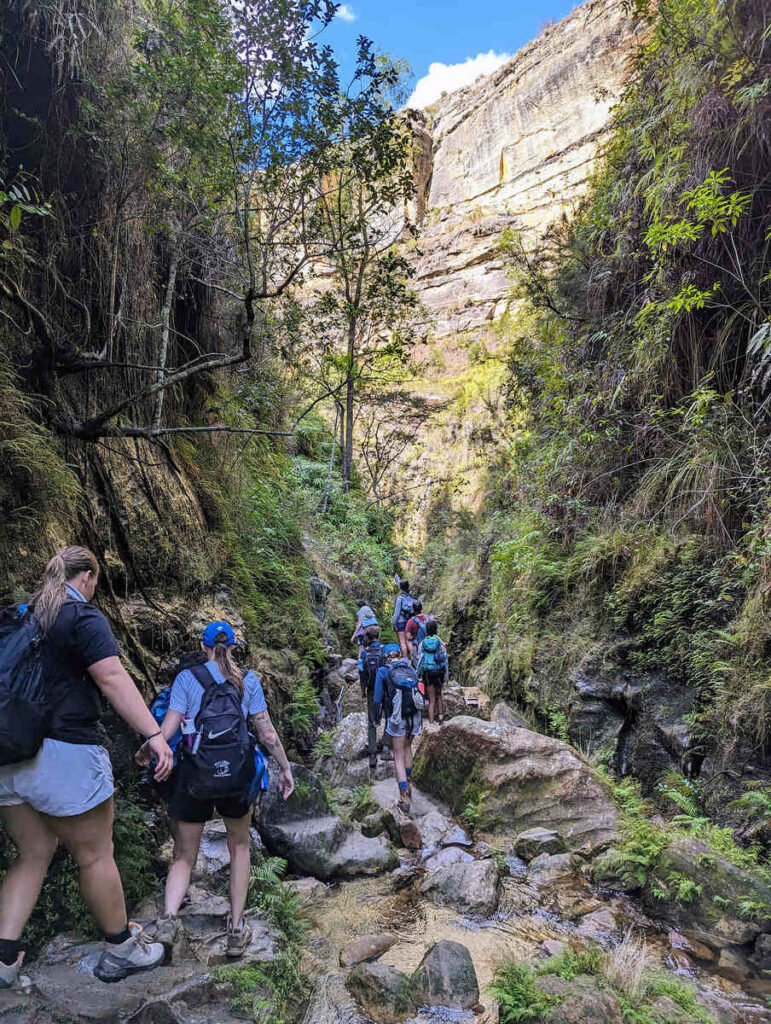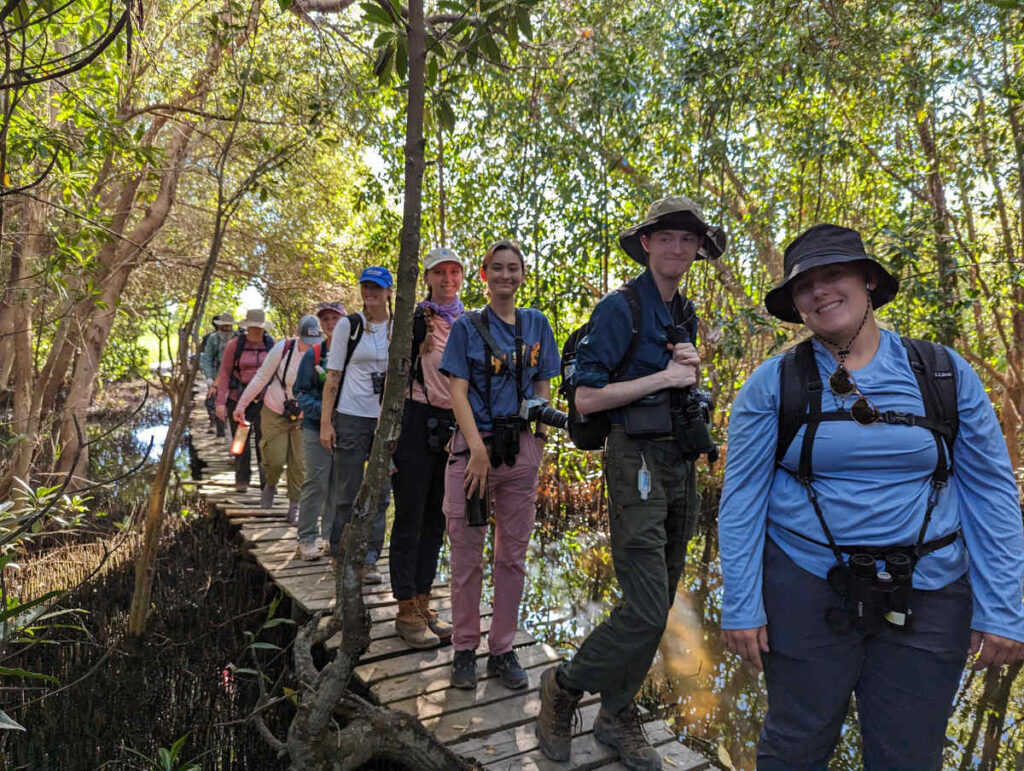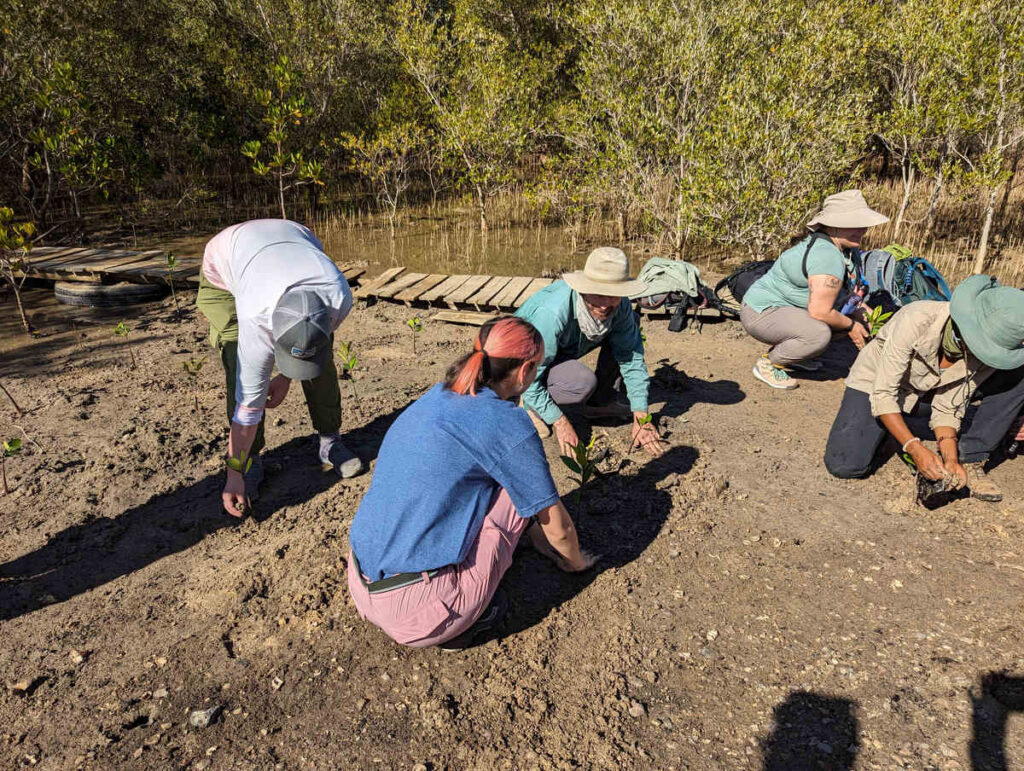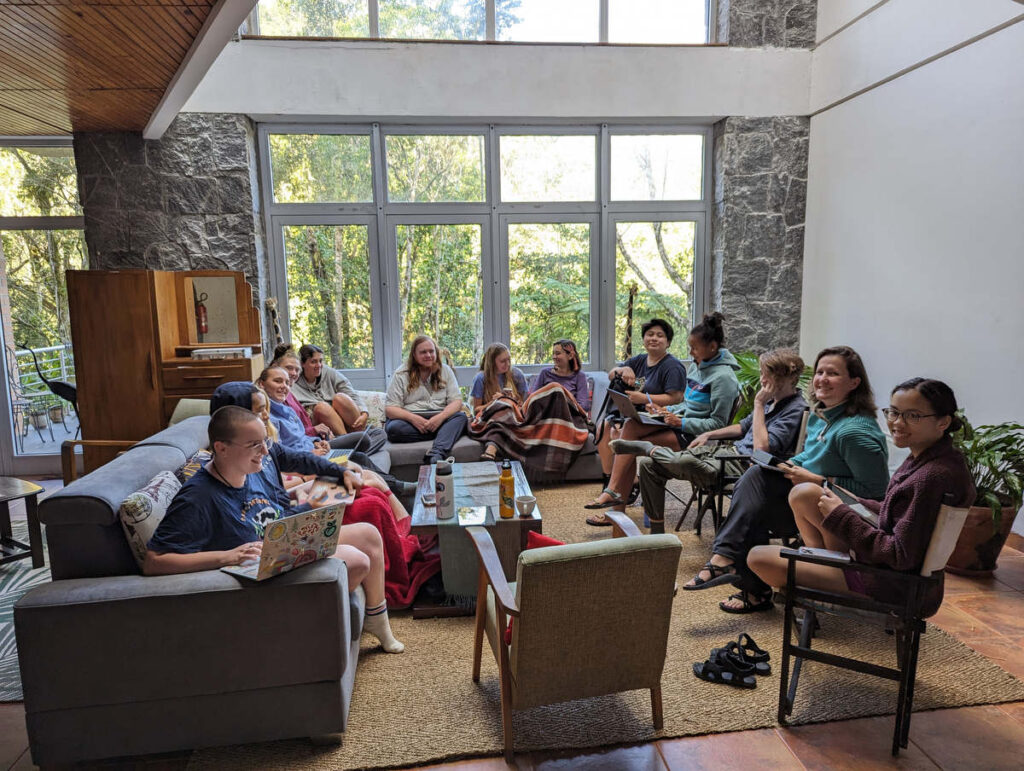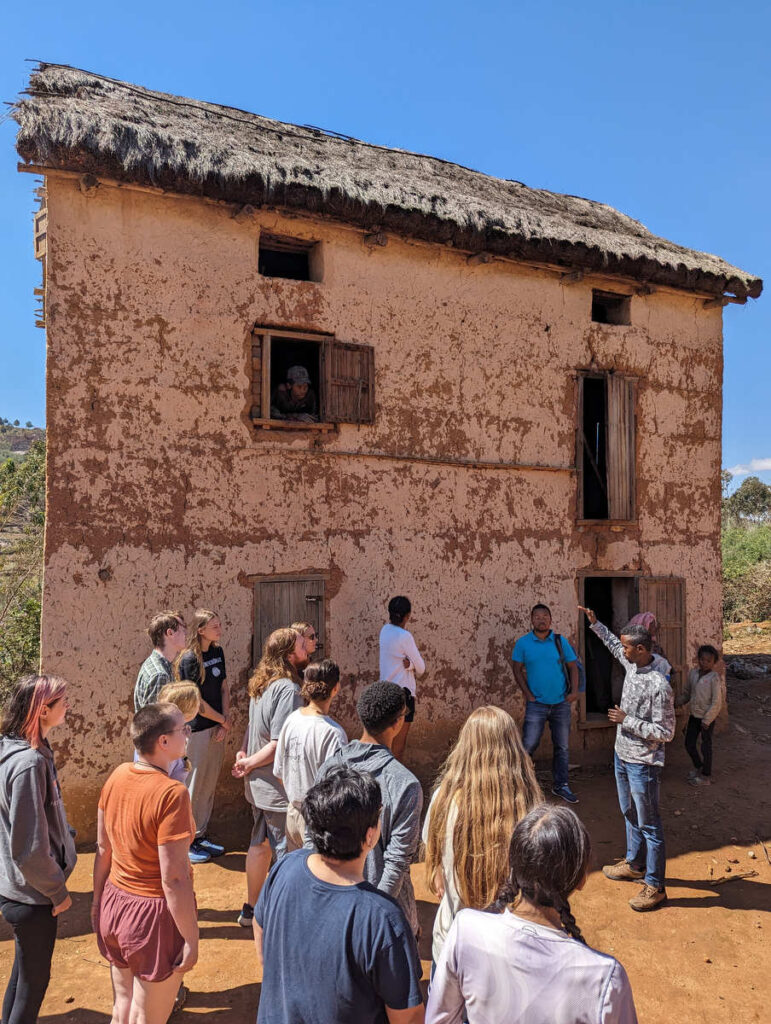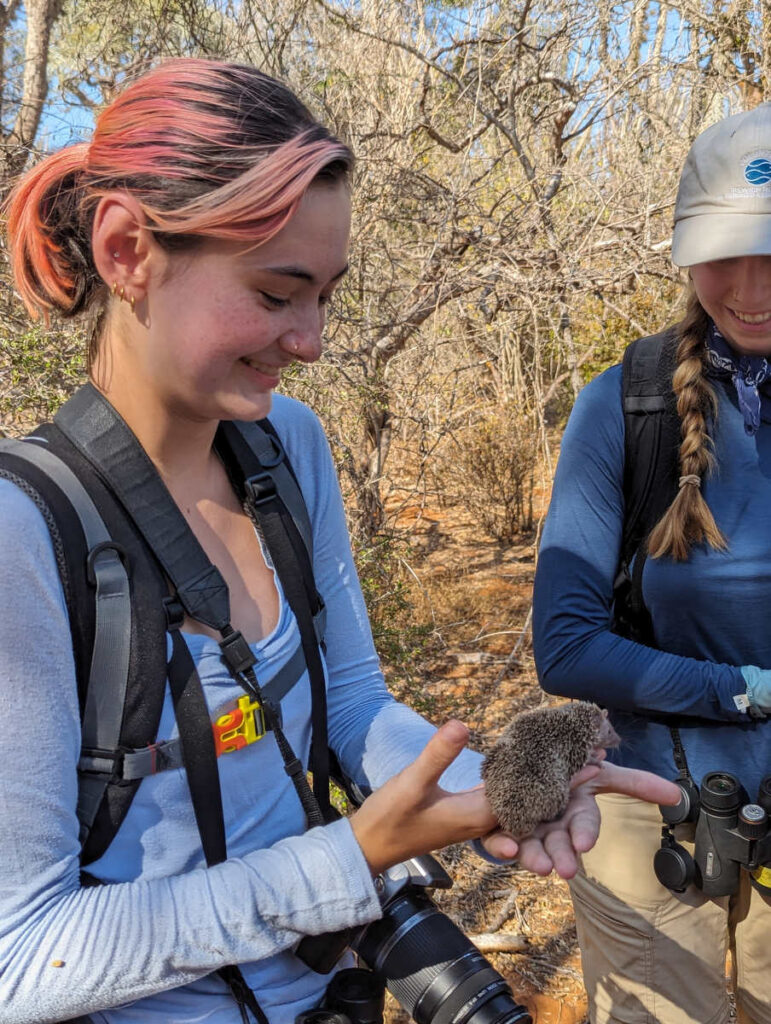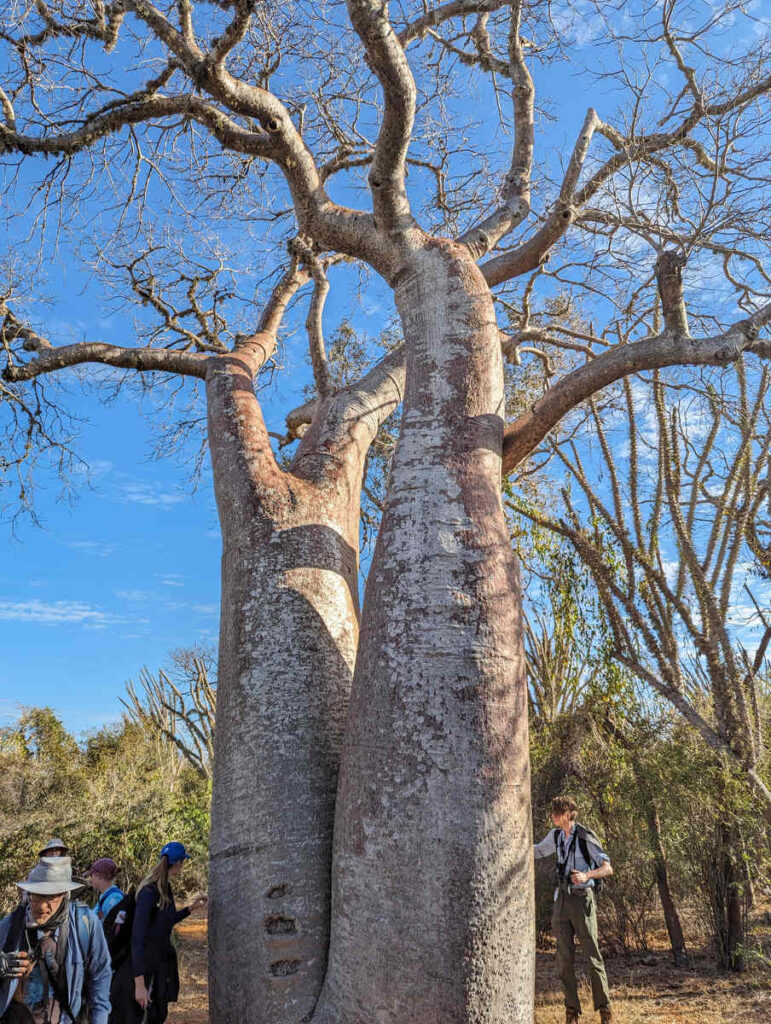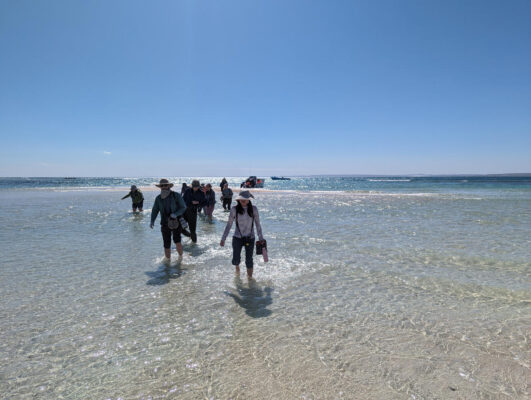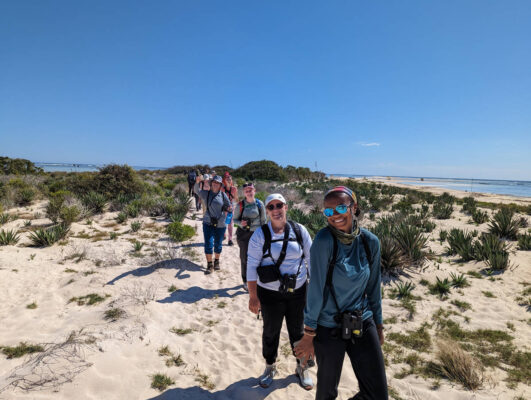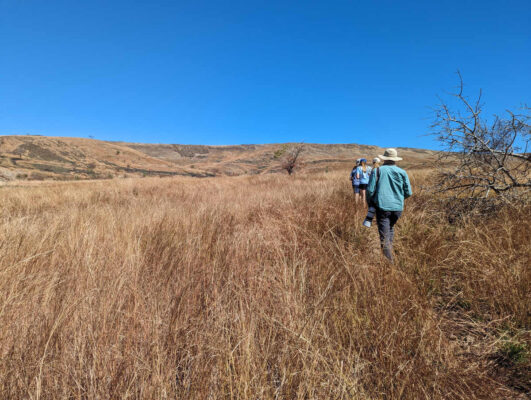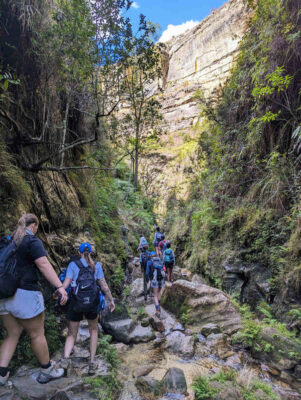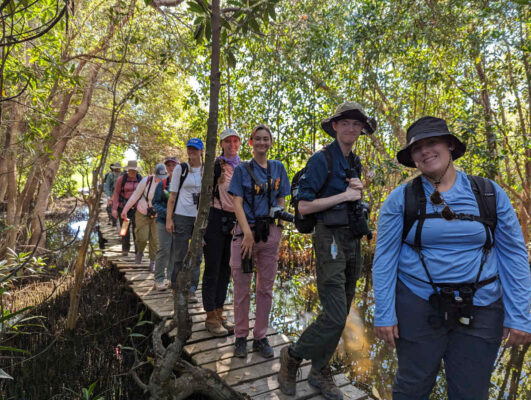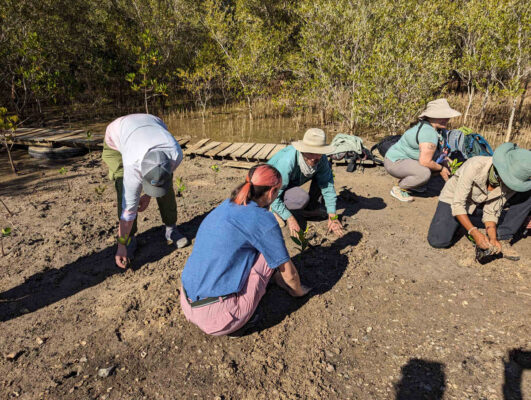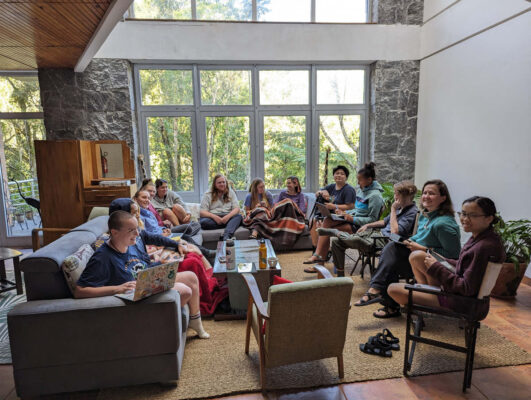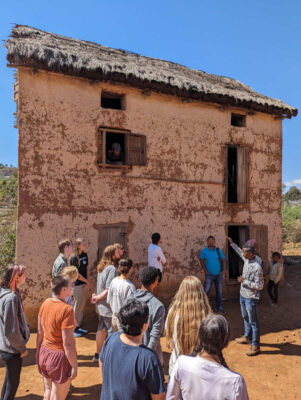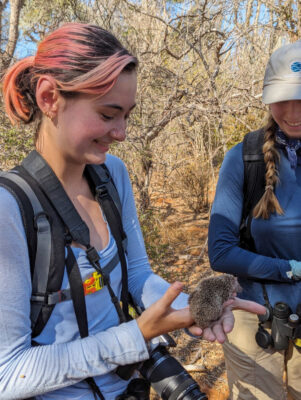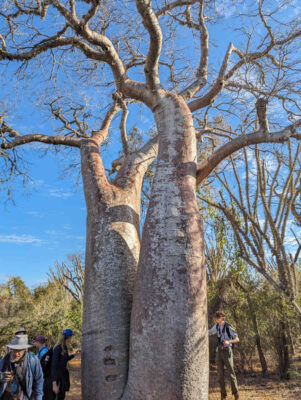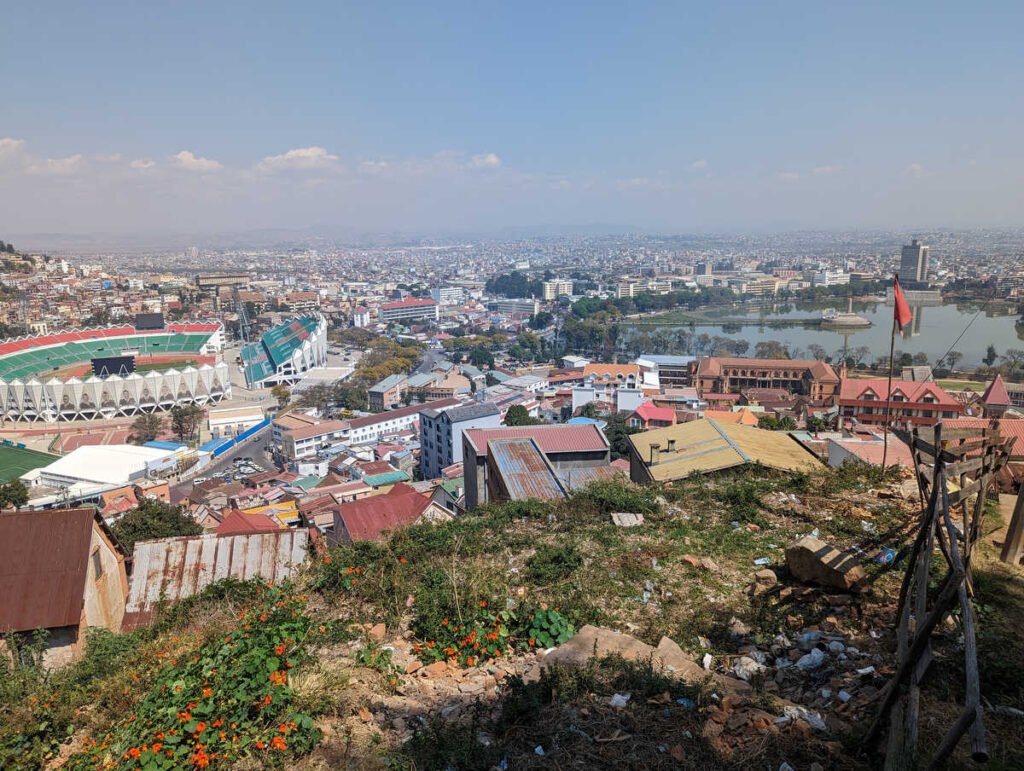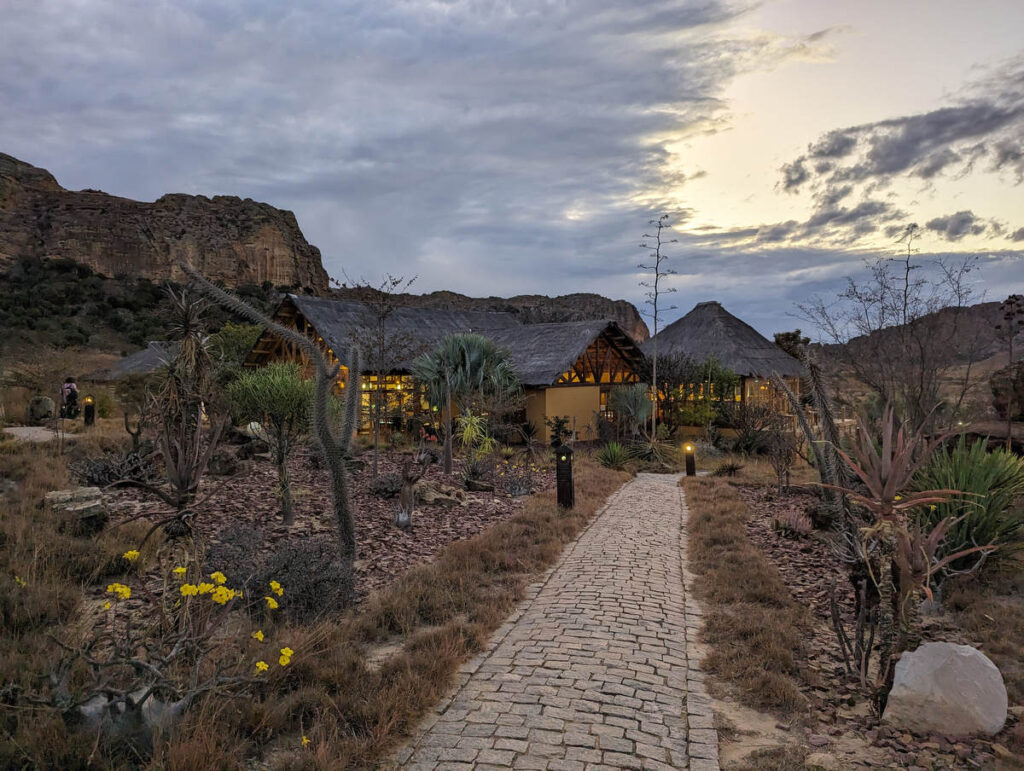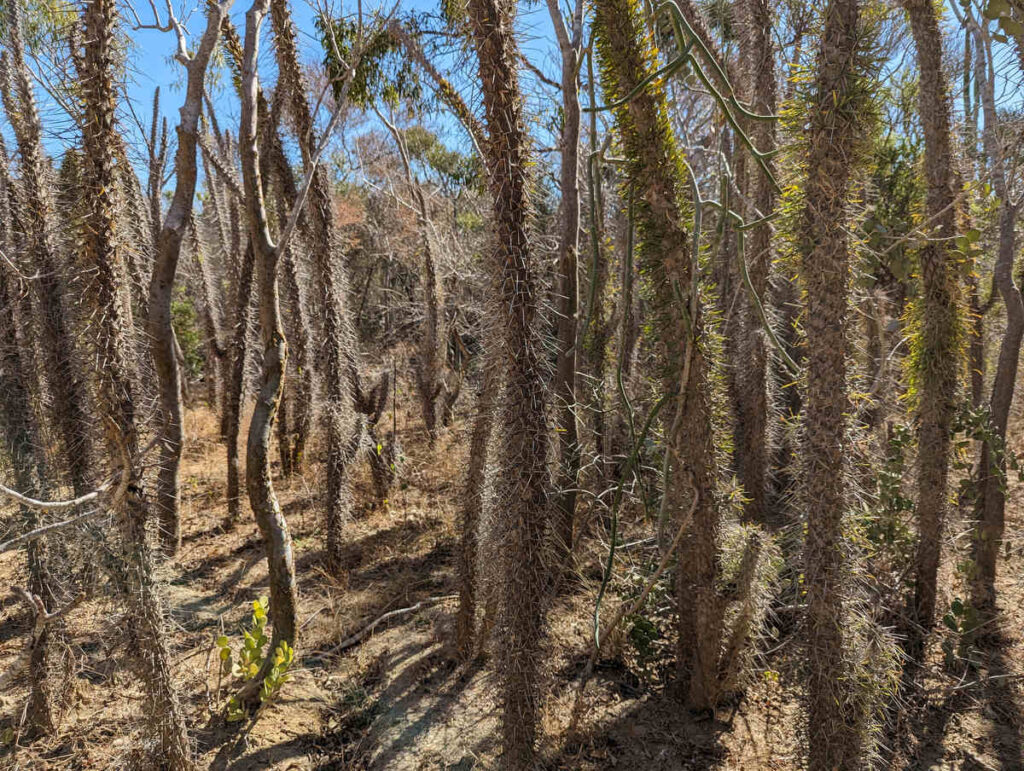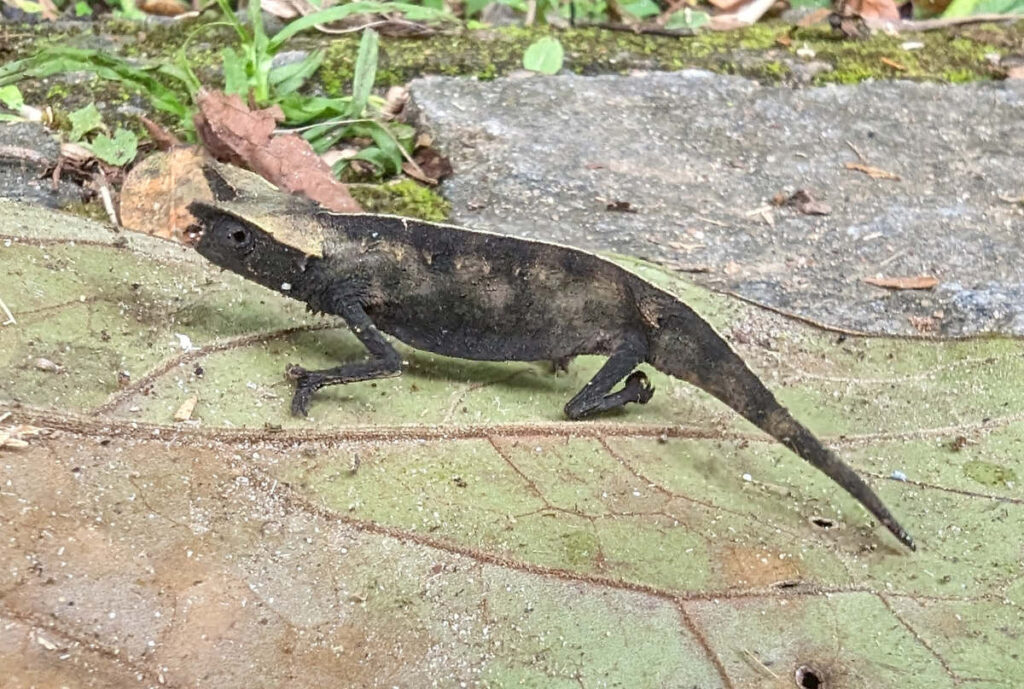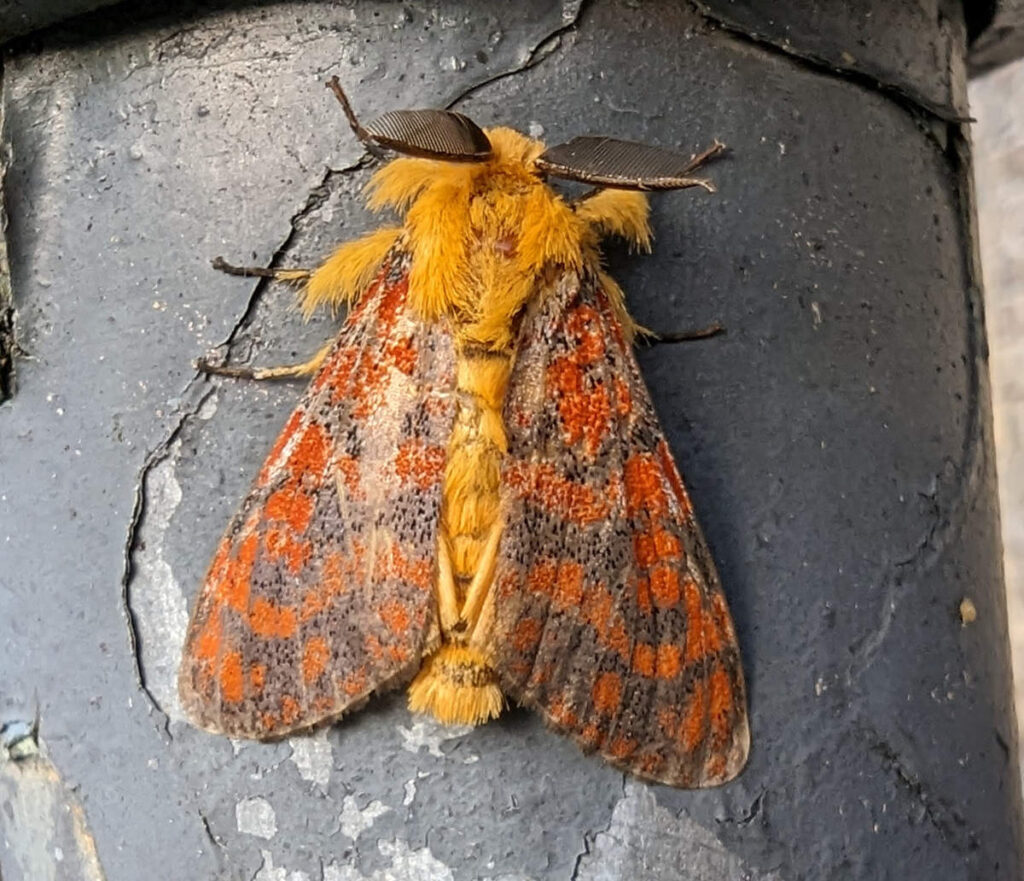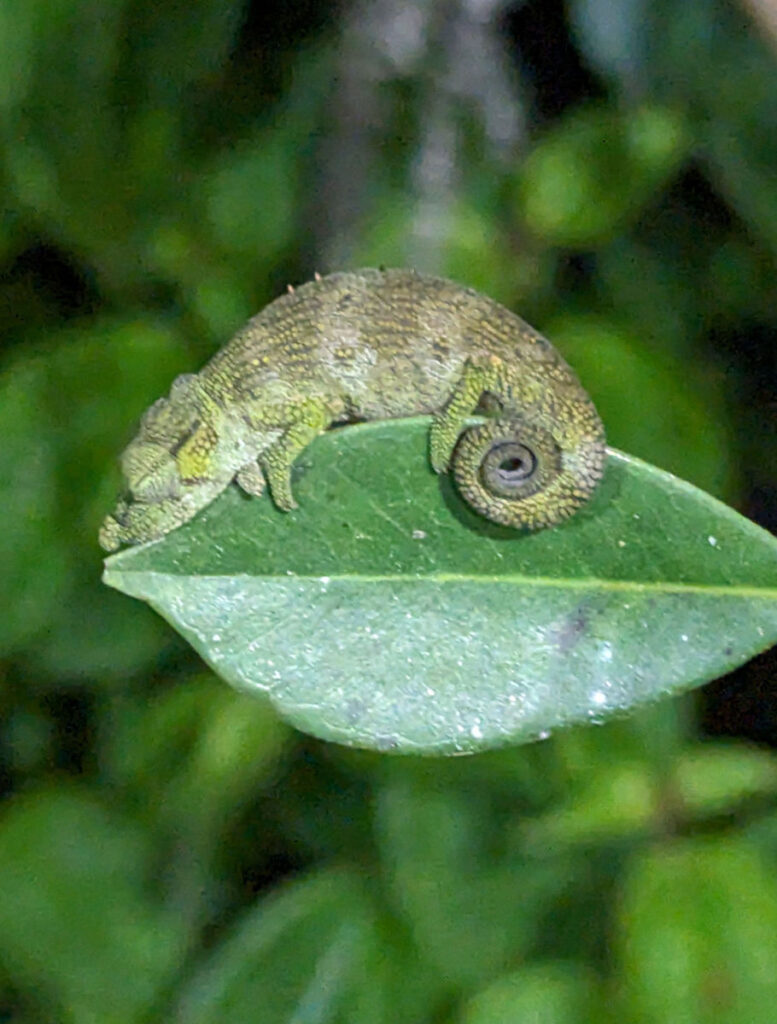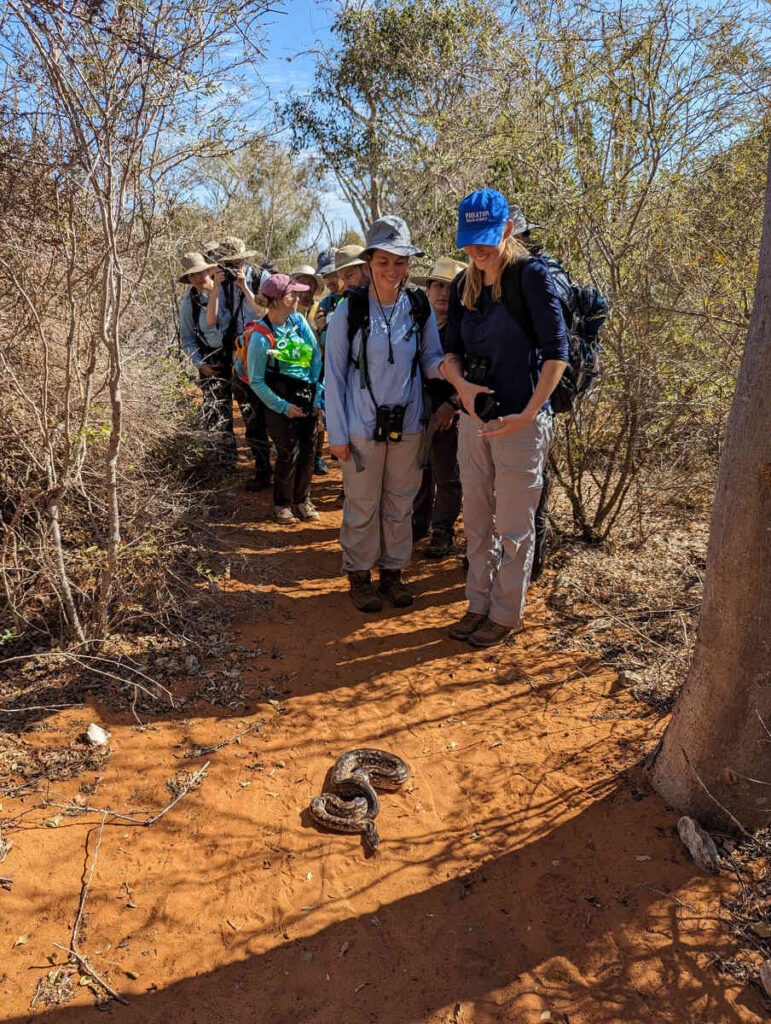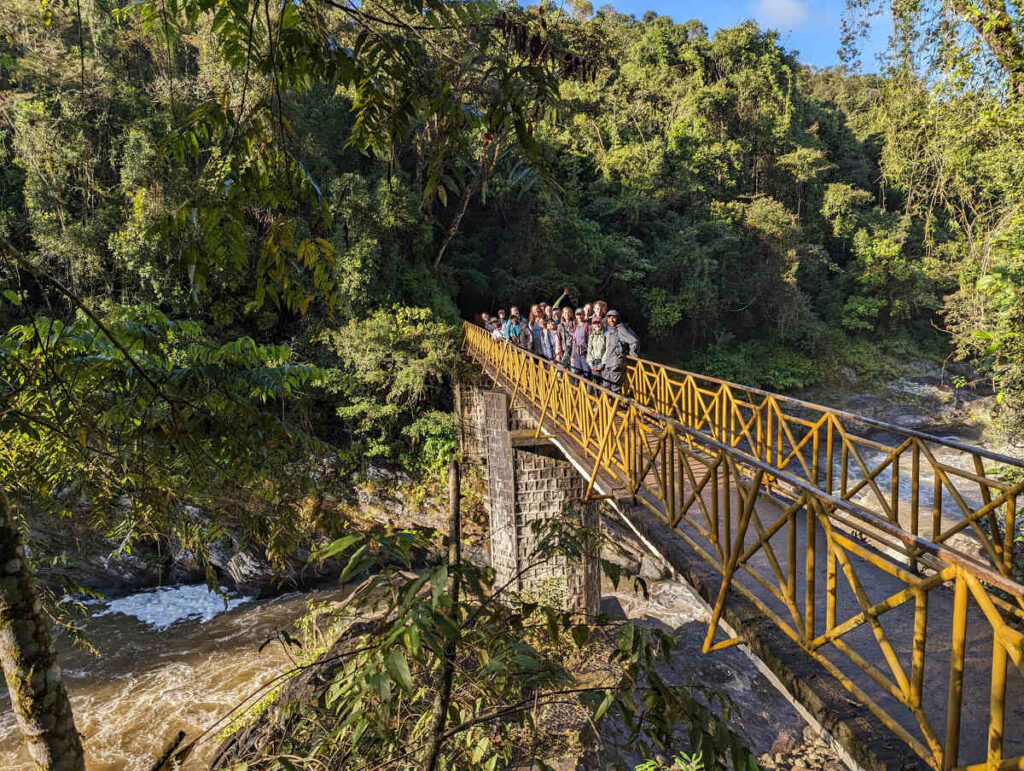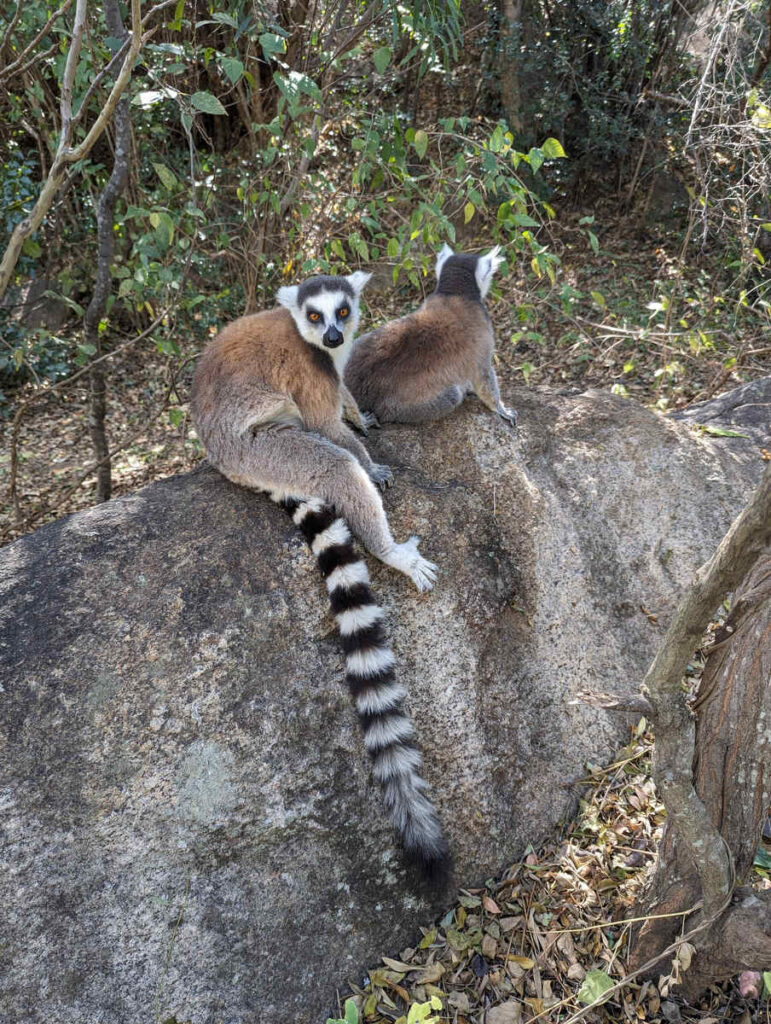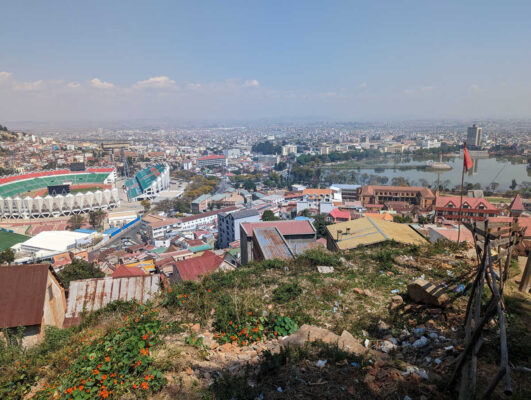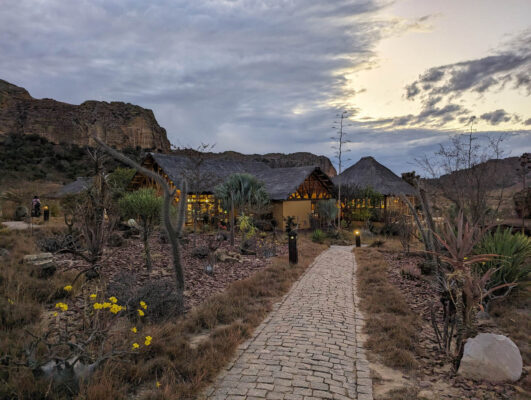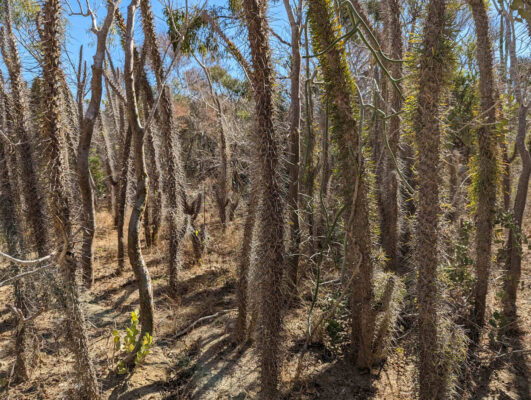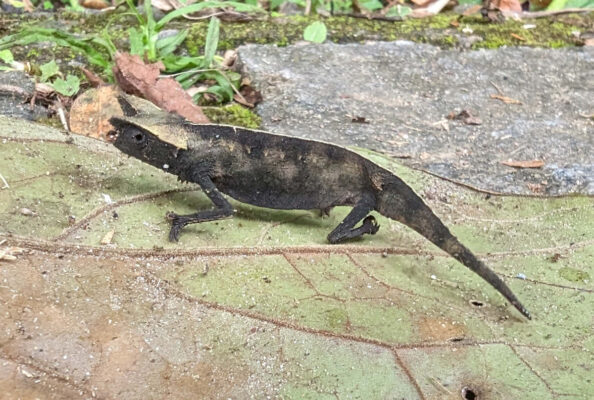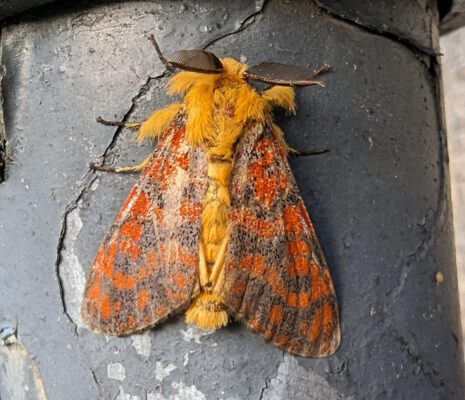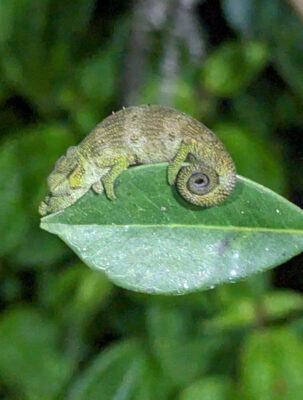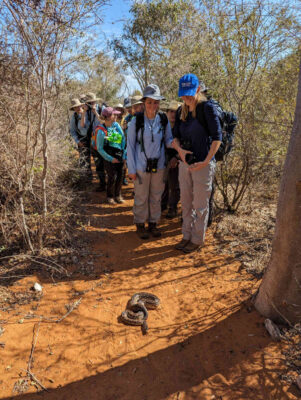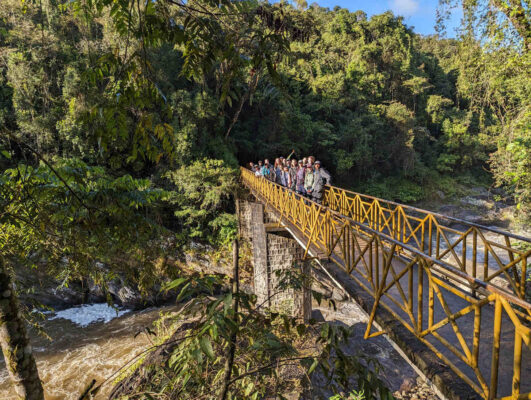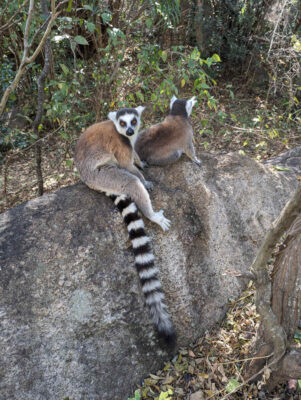Wheaton professors lead course in Madagascar
Students say the journey was challenging and eye-opening
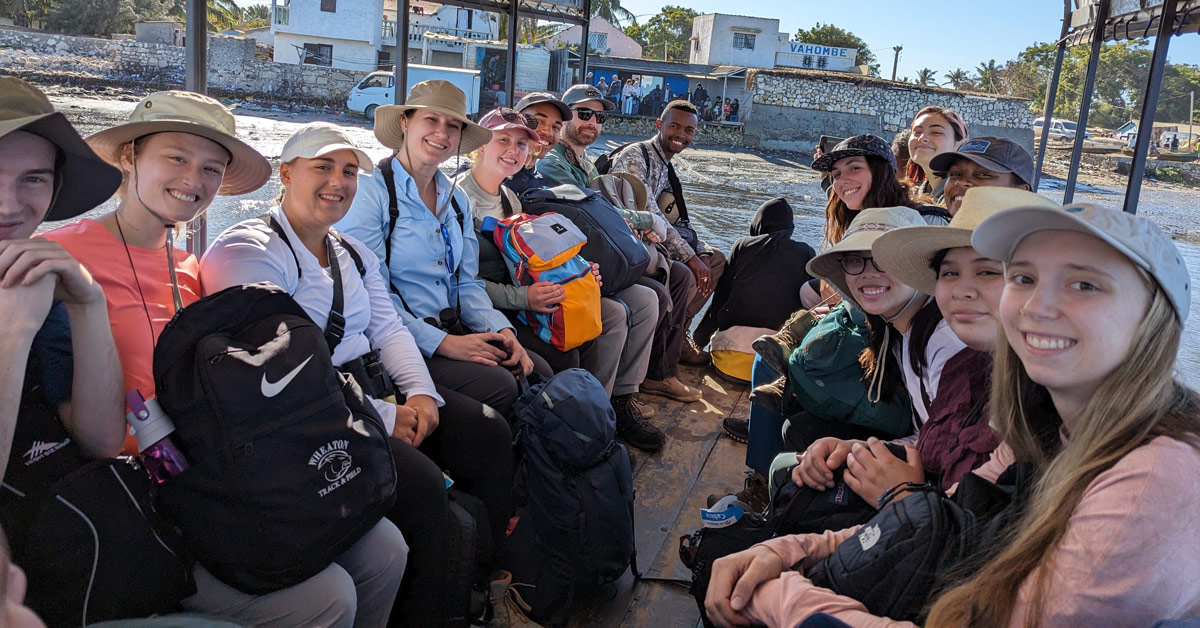
During a study abroad course in Madagascar, Associate Professor of Biology Jessie Knowlton and Associate Professor of Political Science Aubrey Westfall led 15 students on a trip that had them traveling by boat, walking along beaches and through cities, villages and forests.
The group explored how politics, culture and the environment intersect and influence each other in the inaugural interdisciplinary course “Between Peril and Promise in Madagascar: Intersections of Politics and Biodiversity on the Eighth Continent.”
Their quest to take in new sights and gain knowledge about local people and ecological challenges brought them to several locations to dive into their subject matter. One stop was in the rainforest at Ranomafana National Park, where scientists from all over the world come to conduct research and more than 20,000 visitors come each year, feeding the local economy. See gallery of photos below.
“Illegal activity in the form of gold mining and logging of endangered rosewood trees has increased inside the park boundaries in the past decade, and violence and corruption threaten to undermine the fragile coexistence of the endangered species in the park, the Malagasy people, and foreign tourists and researchers,” Knowlton said.
“Wheaton students learned firsthand how the ways in which the larger political landscape of the local and state governments affect how local people view, use and benefit from the environment around them, and the tradeoffs between short-term monetary gain and long-term sustainability of entire systems,” she said.
In reflection essays written at the end of the course, some students called the trip life-changing.
“It was truly the trip of a lifetime, filled with seeing endemic species, meeting some of the kindest people and experiencing it all with a great group from Wheaton College. But, there were also some really difficult moments in the trip. We saw the harsh realities of life in Madagascar, up close and personal,” said Amanda Bogardus ’24, who is double majoring in education and psychology.
“When people ask me about the trip I often start with all of the good things. I tell them all about all the species that we saw—like lemurs, chameleons and, of course, the baobab trees. But with my close family and friends, I also tell them about seeing children working on the side of the road, people always asking us for our leftover food, and all of the burned forest that we saw along our journey,” Bogardus said.
Charlotte Gedraitis ’25 wrote about gaining knowledge that supports her course of study.
“As a biology major, this course really helped me learn what it’s like to study out in the field,” Gedraitis wrote. “I really learned how to take better notes, how to study a specific species, and how to use equipment such as binoculars and citizen science apps to better understand and record the situations around me. I also had the chance to learn a lot about new species that we don’t have at home.”
Westfall said she, too, valued the chance to see so many different species.
“I have always loved animals and the outdoors, but this was my first ecological field experience, so I really enjoyed the chance to observe nature deliberately and systematically. The local guides were a fantastic resource, and I valued their amazing ability to spot and identify everything and explain why it was special,” Westfall said.
Both professors appreciated seeing students engaged in the transformative experiences provided by the course.
“We hope that the students took away a deeper understanding of how fragile ecosystems are, and that we are in a critical moment, when some of the earth’s greatest treasures are at risk of disappearing,” Knowlton said.
(Photos by Associate Professor of Biology Jessie Knowlton)

